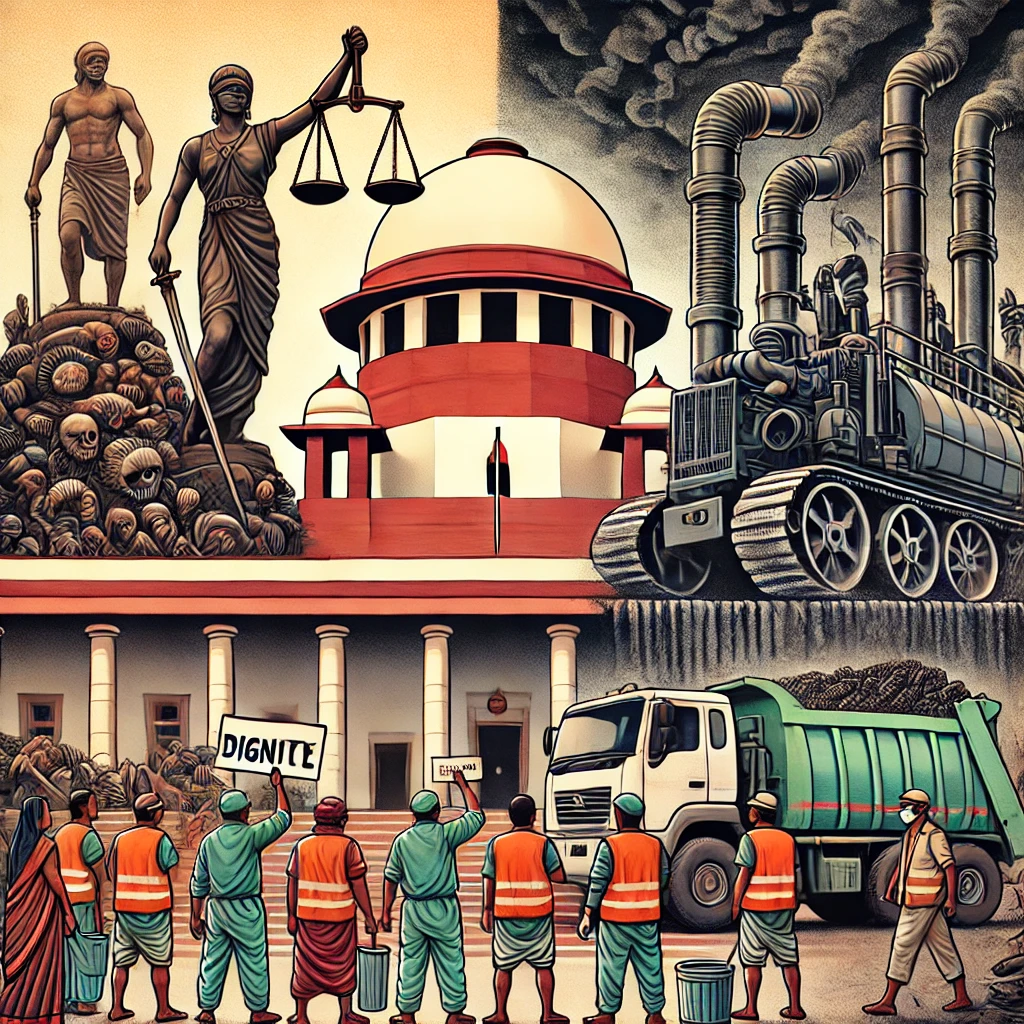
Supreme Court Directs Government to Compensate Families of Manual Scavengers
For years, manual scavengers—workers who clean human waste from dry latrines, open drains, and sewers—have fought for dignity and justice. Despite multiple bans, deaths due to toxic gases in sewage cleaning continue to plague marginalized communities in India.
Now, in a historic ruling, the Supreme Court has directed the government to provide immediate compensation to families of deceased manual scavengers and strictly enforce bans on hazardous cleaning practices.
The Case That Brought Change
A public interest litigation (PIL) was filed by human rights activists after reports revealed that more than 1,000 manual scavengers had died due to toxic gas exposure in the past decade.
The petition highlighted:
🚫 Lack of accountability from municipalities despite the 2013 Prohibition of Employment as Manual Scavengers Act.
🚫 Meager compensation—if any—provided to families of deceased workers.
🚫 Failure to implement mechanized cleaning, forcing marginalized Dalit workers into hazardous jobs.
What the Supreme Court Ordered
Justice Sanjay Bhushan ruled that:
✅ The government must pay ₹30 lakh compensation for every manual scavenger death.
✅ Immediate implementation of mechanized sewage cleaning in all states.
✅ Criminal penalties for officials who permit unsafe manual cleaning.
Impact of the Ruling
📌 Immediate relief for families who lost their loved ones to this inhumane practice.
📌 Stronger enforcement of anti-scavenging laws.
📌 A potential end to generations of exploitation suffered by marginalized communities.
While this judgment is a monumental victory, activists say the real fight begins now—ensuring strict enforcement on the ground.












comments